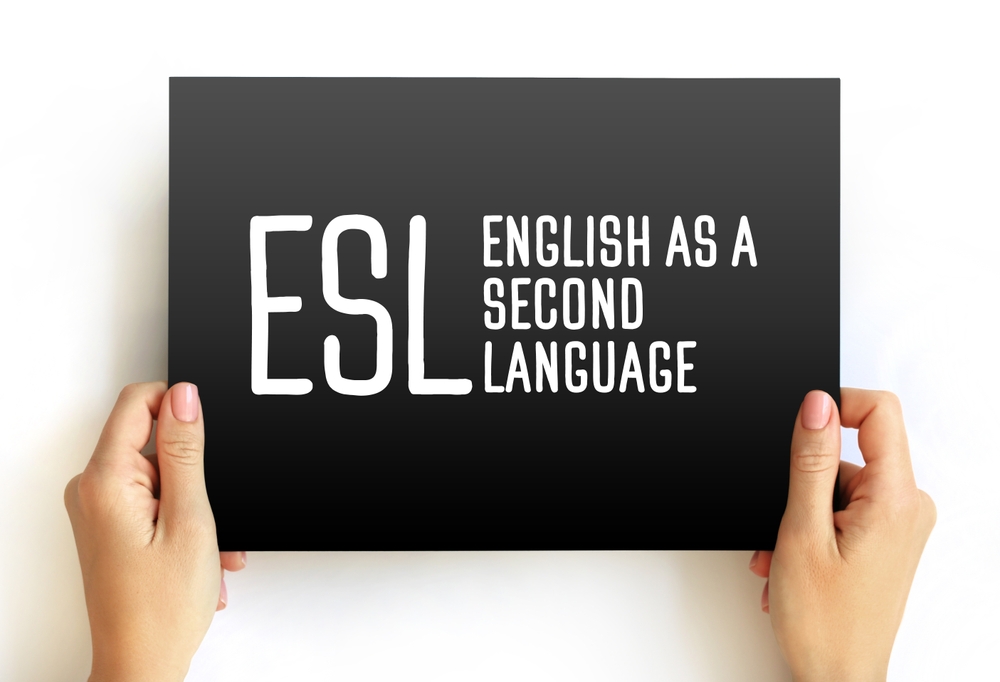Adult education is a growing and evolving field with lifelong learners and teachers. Indeed, it’s a vital component in today’s fast-changing job market. After all, it addresses the needs among adults for skill updates and personal growth.
The numbers support these assertions, too. About 40% of adults – or 76 million – took part in at least one adult education activity in the past year.
Indeed, now is the right time to consider earning adult education certifications. As an undergraduate student, you’ll enjoy these benefits of early certification.
- Demonstrate your professionalism and commitment to adult education
- Gain practical skills aligned with current standards
- Build a stronger network and increase job leads
In short, getting certified as an undergraduate will increase your job readiness. You’ll be more competitive for jobs as a result.
So, if you’re interested in earning adult education certifications, read on. We’ll cover certifications in adult education, continuing education, and workforce development.
Related:
- Essential Certifications for Aspiring Business Analysts
- Project Management Certifications for Undergraduate Students
- Certifications for Aspiring Civil Engineers
- Certifications for Undergraduate Students Interested in Accounting
- Special Education Certifications for Undergraduate Students
- Certifications for Aspiring K-12 Teachers

What Is Adult Education?
When we say “adult education”, we mean learning opportunities specifically intended for adults. The best examples include:
- Community education programs
- GED preparation
- English as a Second Language (ESL) courses
- Workplace training
- Professional development
- Personal enrichment activities
Their specific goals, activities, and outcomes differ. But all enable adults to improve their knowledge and skills.
These programs apply adult learning theory and Knowles’ concept of andragogy. Both recognize that adults are different from children, and so are their learning needs.
As such, there are many key differences between adult education and K-12 education. Adult education addresses the need for practical knowledge and skills. K-12 education focuses on building foundational knowledge and skills.
Why Certifications Matter in Adult Education
Of course, you can choose not to earn certifications as an undergraduate. You can wait until you’re a licensed teacher to do so. Perhaps you want to gain experience first or decide to shift focus in your career later on.
But there are merits to earning adult education certifications while still in college.
- Boost your employability and credibility before or after graduation.
- Show your commitment to continuing education and specialized knowledge.
- Open opportunities in nonprofit organizations, community colleges, and corporate training.
Keep in mind that adult education certifications are just tools in your hands. Your responsibility is to leverage them so they become effective tools.
Top Certifications for Undergraduate Students in Adult Education
TESOL / TEFL Certification
This is among the best certifications for undergraduate students because of the following:
- It has easy eligibility requirements. Most programs welcome candidates who:
- Are at least 18 years old
- Have a high school diploma or its equivalent
- Don’t have prior teaching experience
- It allows certified individuals to teach in domestic and foreign settings.
- It can be completed in 120 hours and at an affordable cost.
Both in-person and online programs are available. The International TEFL Academy and Coursera’s TESOL program are excellent choices. The costs vary between $300 and $1,500 depending on the accreditation and duration.
Certified Professional in Learning and Performance (CPLP – now CPTD)
The Association for Talent Development (ATD) offers the best adult learning certification programs. The Certified Professional in Talent Development (CPTD) designation is popular because it:
- Validates advanced expertise in talent development. You’ll gain specialized skills in workforce training and adult learner performance.
- Boosts career advancement opportunities and earning potential. CPTDs can earn $86,635/year in average salaries.
- Has global recognition. You can apply for well-paying jobs in the US and abroad.
Note that it’s designed for corporate trainers and adult education leaders. As such, it requires relevant professional experience.
The exam cost varies from $999 to $1,500, depending on membership.
Adult Education Certificate (University-based)
Penn State and UMass Boston offer strong continuing education certifications. You can also find certificate options in adult education here. Examples include:
- Adult Basic Education (ABE)
- Family Literacy
- Transition Leadership
These certificates cover a wide range of topics related to adult education, including:
- Adult learning theory
- Instructional design
- Assessment and evaluation
Most programs have an online or hybrid learning format. The cost varies from $3,000 to $6,000.
Workforce Development Certification
You’ll find a wide range of workforce development certifications offered by:
- International Association for Workforce Professionals (IAWP)
- Community colleges
These certifications prepare students to work in government and employment programs. These certifications focus on helping adults improve their job skills and employment readiness. You’ll also improve your ability to design and deliver workforce development programs.
These are more affordable certifications – costs range from $500 to $2,000.
Continuing Education & Community Education Certifications
If you’re looking for affordable teaching adult learners certification programs, consider them. The costs vary between $200 and $1,000.
These certifications focus on non-credit adult programs that:
- Aid adults stay current in their field or meet professional requirements
- Enable adults to gain job-ready trades or skills
Many of these certification programs are offered through:
- Public libraries
- Community centers
- Extension programs
The California State Extension Programs is a prime example.
Digital Literacy and Instructional Technology Certifications
These certifications prepare students to teach tech skills to adults. Their adult learners become more familiar with digital tools and platforms. These skills are valuable for supporting digital inclusion and job readiness.
You can earn an adult education teacher certification in these areas:
- Google Educator Level 1
- IC3 Digital Literacy
- Microsoft Certified Educator
These are ultra-affordable certifications, too, with costs between $90 and $150. You’ll get good returns since you’ll be more competitive for jobs in these areas.
ESL/ELL Specialist Certifications
These certificates are specific to teaching English to adult immigrants and refugees. You’ll get extensive training on language acquisition and cultural competence. The combo is crucial to ensure a respectful, supportive, and relevant teaching environment.
You can find ESL/ELL specialist certification programs offered by:
- TESOL International
- Universities (e.g., UMass Amherst, UC Irvine, and the University of Arizona)
Costs for these programs range from $1,000 to $2,000 and up.
Where to Earn These Certifications Online
Earn the best certifications for adult education on these online platforms and colleges.
- Coursera offers a wide range of certifications in partnership with top institutions.
- edX provides fully online programs from prestigious institutions worldwide, too.
- TESOL.org offers excellent ESL courses.
- ATD.org specializes in corporate training, workforce development, and professional learning.
- Penn State World Campus offers programs that combine academic rigor and real-world applications.
- University of Phoenix specializes in adult education programs for working professionals.
- Walden University offers comprehensive programs for current and aspiring teachers.
These programs offering online certifications in adult education feature flexible schedules.
Career Paths and Job Opportunities with Adult Education Certifications
These certifications open opportunities for a wide range of well-paying and fulfilling jobs.
- Adult literacy instructor
- Workforce training coordinator
- Community college instructor (with future graduate education)
- ESL adult educator
- Continuing education program coordinator
- Corporate trainer
Indeed, you must choose the right certification. This way, you’ll have a clear career path before graduation.
Tips for Choosing the Right Certification as an Undergrad
Here are steps that you can take to choose the right undergraduate certification.
- Consider your long-term goals. Do you want to be in corporate training, community work, or ESL? Choose one that aligns with your interests and goals.
- Match your certification choice with your current degree path (education, communications, sociology). You’ll have a more cohesive career profile.
- Consider your budget and the time commitment involved. You want to complete the program, not drop out due to money and time issues.
- Explore stackable credentials. You’ll be able to build advanced credentials over time.
Conclusion
In conclusion, earning certifications to teach adults while pursuing a degree has value. You’ll gain specialized skills and boost your job prospects, among other benefits.
Indeed, adult education offers a fulfilling and flexible career path. You’ll make a meaningful impact on adult learners from diverse backgrounds.
So, research programs, enroll in the right one for you, and start building experience now.
Comparison Table: Top 5 Certifications for Adult Education
| Certification | Cost | Length | Focus Area |
| TESOL/TEFL | $300 – $1,500 | 120 hours | Teaching English to non-native speakers |
| CPTD | $999 (members) or $1,500 (non-members) for exam only; separate cost for prep courses | 80-100 hours prep time; 3 hours exam | Workforce training, corporate learning and development, and performance improvement |
| Adult Basic Education (ABE) | $3,000 – $6,000 depending on institution | 4-9 months (full-time or part-time) | Adult literacy and numeracy among out-of-school youth and adult learners |
| Workforce Development | $500 – $2,000 | A few weeks to a few months | Job skills training and employment readiness |
| Digital Literacy and Instructional Technology | $15 – $300 | A few hours to a few weeks | Teaching tech skills to adults |
Frequently Asked Questions
Can you teach adults with only a certificate?
Yes. Many adult education roles accept candidates with relevant certificates. Some may also require a bachelor’s degree and work experience.
What’s the difference between TESOL and TEFL?
TESOL is a broad certification for teaching English in the US and abroad. TEFL has a more specific focus – teaching English in non-English-speaking countries.
Do these certifications require prior teaching experience?
It depends. Most don’t require prior teaching experience, such as TESOL and CPLP.




